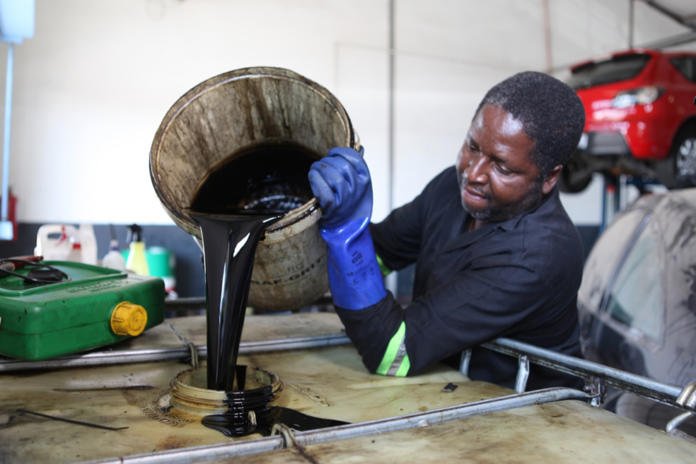SELF-EMPLOYED mechanics operating in urban township areas of the Western Cape and Gauteng seem to be enjoying booming business if a recent research survey is anything to go by.
The ROSE Foundation (Recycling Oil Saves the Environment) recently commissioned an in-depth survey on independent mechanics informally operating from their homes in Langa, Khayelitsha, Phillipi, Mitchells Plain, Soweto and Alexandra, and the results reveal a thriving industry, with backyard mechanics servicing up to 20 cars per week in some instances.
Concerns about environmental contamination
However, increased business generates increased volumes of dirty used oil that the mechanics have to store and dispose of. Used oil is a hazardous substance – containing a host of harmful chemical compounds and carcinogens, one litre of used oil can contaminate one million litres of water.
The ROSE Foundation is most concerned about how mechanics are getting rid of their oil. “We know that this segment of the market is not very compliant – mostly because they aren’t aware of how hazardous used oil is and they don’t know how to dispose of it correctly,” says Bubele Nyiba, CEO of The ROSE Foundation.
“In our survey, we asked questions about their volumes of new oil purchased, their buying preferences and most importantly their approach to the collecting, storage and recycling of their used motor oil so we can approach them correctly.”
“When they’re busy, independent mechanics can purchase up to 30 litres of new oil a day. Accurate figures around the volumes of used oil generated are not easily available and we have to estimate these figures based on the number of cars being serviced and new oil purchased,” says Nyiba.
“It was worrying to see that the majority of the mechanics surveyed are only vaguely aware of, or concerned with the hazards of used oil. The survey revealed that there is little to no understanding about the harmful effects of used oil on the environment, and although these mechanics are capturing used oil in a variety of make-shift containers it is done to keep the oil out of their yard – often due to pressure from wives and family members about the unsightliness of spilt used oil.”
According to Nyiba, while some admitted to having poured the oil down the drain in the past, most said they had stopped this habit for fear of the oil clogging their drains. Some disposed of their used oil by pouring it out into nearby open land, but noted that the grass no longer grew in the area, and others said that they had sold or given their used oil away to people who used it to preserve the wood on their wendy houses or had painted it onto their dogs to kill fleas. “These are all practices that are harmful and allow the used oil to make its way directly into the environment,” says Nyiba.
A few of the mechanics said that they did try to take the oil to drop-off points but it is was hassle for them, costing them time and money for petrol to drive to those locations.
“The ROSE Foundation is extremely concerned about used oil that generated by independent mechanics, that is not being responsibly recycled – we will focus on educating and assisting this market with compliance.”
“The ROSE Foundation is urging all independent mechanics and anyone who works on their cars to please think twice about what they do with used oil. Put it in a drum or old oil can or any clean container with a tight lid and take it to the nearest drop off point, at a local depot, municipal garden refuse site, or auto workshop. Or call the ROSE Foundation on (021) 448 7492 and ask about a collector coming to take it away for you.” concludes Nyiba.
